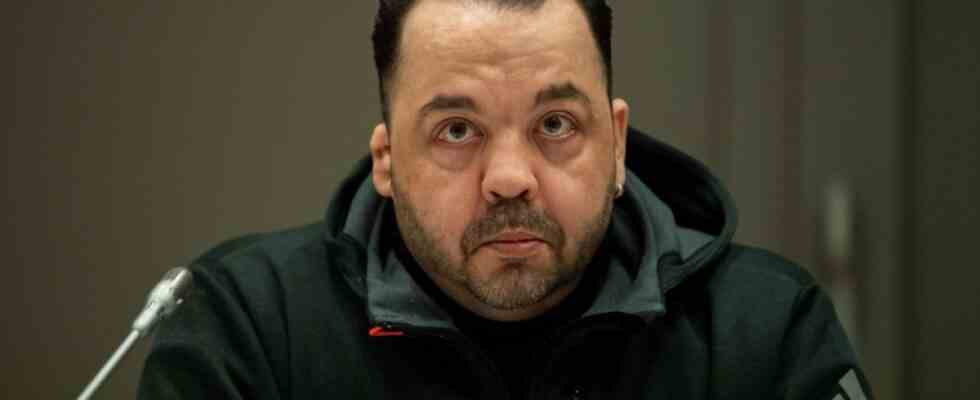It’s finally about the murders and no longer about the murderer. For the murdered, at least eight of them. Niels Högel killed at least 87 people as a nurse in Oldenburg and Delmenhorst between 2000 and 2005. “They are responsible for the deaths of more people than are sitting here in the hall,” says a lawyer in the Weser-Ems-Hallen, before the Oldenburg district court. Eight of these cases are being tried here, but not against Högel. But against those who could have stopped him.
Högel has long been convicted, most recently in 2019 for 85 murders, he is now a witness. Initially, seven of his former superiors were charged with aiding and abetting manslaughter or attempted manslaughter through omission. However, it takes a day and a half before Högel’s interrogation becomes concrete. On Wednesday, the presiding judge, Sebastian Bührmann, named the dead and the dates of their killing. Does Högel remember? “The truth is important,” says Bührmann.
Sometimes the witness remembers, sometimes not
Case one of this trial, Oldenburg Clinic, November 17, 2001, Hermann K., murdered with the non-indicated heart drug Gilurytmal. He couldn’t say anything about that, says Högel, he hadn’t prepared for individual actions. The defense attorneys want to adjourn the questioning, but Judge Bührmann, at times annoyed, continues. There is also a first name of another nurse who was on duty with Högel when he gave fatal injections. Högel does not know exactly. Then case four comes from the Delmenhorst Clinic. June 22, 2005. Dieter M. had a serious operation, Högel injected him with Gilurytmal. M. was resuscitated and died the next day, all according to the files presented by Bührmann. Högel says: “I have a lot of memories there.” That almost has to do with the end of his series of murders.
At the time, Högel was caught by the death of Mr M., colleagues had caught him in the act, and a blood sample was taken from the victim. But, and this will concern this procedure: Högel has not yet been suspended or reported, he could still murder one last time. June 24, 2005, Högel poisoned Renate Röper with an overdose of Sotalex before he went on vacation and the police came.
In Delmenhorst, according to Högel, he “didn’t really do anything secret anymore”. Unlike in Oldenburg, when he was still careful that nobody caught up with him. The content of this process is why nobody stopped him here or there. But first it’s about Högel’s psyche (“inner emptiness”) for hours, about his own medication such as antidepressants, about his protective vest under his sweater in court, about his telephone interview from the prison and his contract with a production company.
He didn’t have the courage to stand up, says Högel
The 18 defenders are fighting a defensive battle for the accused clinic staff, Högel’s credibility, which is already badly damaged, is to be further questioned. At some point the former Oldenburg head nurse, one of the accused, reports. She asks why he didn’t turn to her with his problems. He couldn’t say he killed patients, he says. “No, before that,” she says.
Högel says that at the end in Delmenhorst he had hoped that “the whole thing” – he means his murder – “will somehow end”. Murders are “so abstruse and unthinkable” for his colleagues, nobody would suspect that, he thought at first, and finally: “Slowly someone has to figure it out.” For outsiders, that sounds “downright perverse,” says Judge Bührmann. The witness Högel, the serial killer, says he didn’t have the courage to turn himself in. “I couldn’t take that last step. It didn’t work. There was a kind of veil.”

